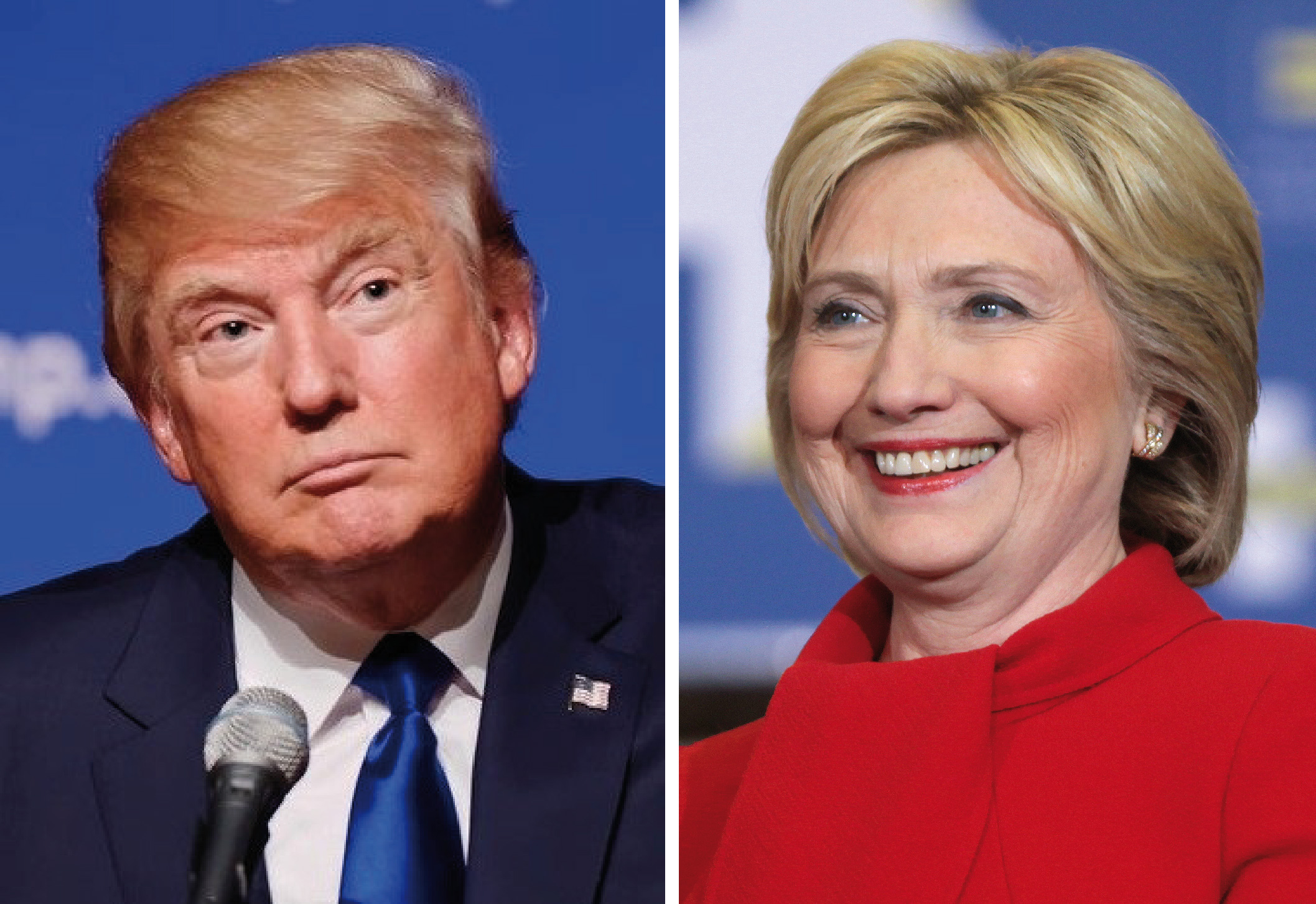During the second presidential debate, an undecided voter wearing a red sweater and sporting a now-iconic mustache rose to internet fame by interrupting the clash between the candidates to ask an important energy policy question.
In a debate that quickly devolved into a series of attacks on character and temperament — with Donald Trump threatening to jail Hillary Clinton if elected and Clinton rattling off groups Trump has offended — Kenneth Bone asked the candidates the only environmental policy question of debates so far: “What steps will your energy policy take to meet our energy needs, while at the same time remaining environmentally friendly and minimizing job loss for fossil power plant workers?” While the candidates have largely left climate change on the back burner of their campaigns, recent polling has shown an increased support across party lines for action on climate change policy, said Nathan Hultman, director of the University of Maryland’s Center for Global Sustainability. Seven in 10 Americans ranked reducing greenhouse gas emissions as a high priority, according to a 2016 university study.
“The environment and climate change are really huge issues we’re facing right now and I think it’s a real shame the hype or the controversies have taken over,” said Amielle Kutzen, president of Terps for Hillary and a senior American studies major. “They’ve completely driven out most of the policy discussions and with that any policy discussion on the environment.”
In April, nearly 200 countries signed The Paris Agreement, a landmark international climate deal to curb greenhouse gas emissions. The agreement goes into effect Nov. 4, four days before the election.
Trump has said he would move to back out of the legally binding Paris agreement if elected president, and in 2012 he tweeted that climate change is a hoax created by the Chinese to hurt American manufacturing. In contrast, Clinton’s website lists her plans to make “America the world’s clean energy superpower” and to take “bold steps to slash carbon pollution at home and around the world.”
The candidates’ approaches to environmental policy reflect divisions among voters about how much attention climate change should receive during the debate. Clinton supporters would like to see 10 minutes of the debate devoted to climate change, while Trump supporters would like only four minutes, according to a survey by the Pew Research Center. Forty-four percent of Trump supporters said they wouldn’t give the topic any time at all, the survey found.
Eighty-one percent of Americans say supporters of Clinton and Trump not only disagree on the issues, but also disagree over “basic facts,” according to the Pew Research Center. This might be fueling the lack of debate about environmental policy, Kutzen said.
“It’s hard when you want to have a substantive policy debate and the person you’re debating against thinks that the issue isn’t even an issue,” Kutzen said. “Because the Republican candidate has flat out denied the existence of climate change, then there’s really not much room for discussion.”
President of College Republicans Jacob Veitch said while the candidates should be debating whether they will continue the deals made under President Obama’s presidency, it’s unlikely that environmental policy will factor into the next debate.
“If [the moderators] do bring it up, who are they asking?” said Veitch, a junior government and politics and international business major. “I think Secretary Clinton will gladly engage in a discussion about it, and I think Donald Trump will pivot and he will talk about ISIS.”
However, even before the debates, Clinton had been focusing less on climate change in her campaign. After Sen. Bernie Sanders endorsed her, Clinton only mentioned the words “climate change” in one out of five speeches, according to The Guardian.
While most Americans agree that climate is changing, only 48 percent believe it is due to human activity, according to the Pew Research Center. Willem Klajbor, a member of the Student Government Association’s Student Sustainability Committee, said this divide in voters’ beliefs might make addressing climate change a risky move for Clinton.
“It’s Hillary’s race to lose and I think she’s staying away from something that might be controversial or might risk losing a percentage of the [voters],” said Klajbor, a junior economics and environmental science and policy major.
The third and final presidential debate will air Wednesday at 9 p.m. Fox News Channel’s Chris Wallace will moderate and has announced he will ask questions about debt and entitlements, immigration, the economy, the Supreme Court, foreign hot spots, and the candidates’ fitness to be president.



